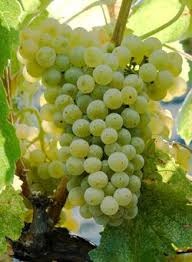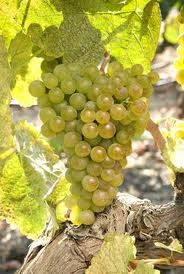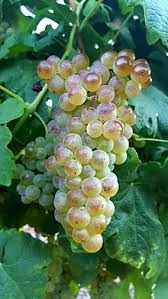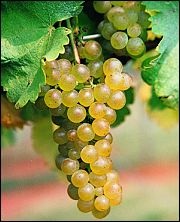WHITE RHONE VARIETIES
South African winelovers’ attention is focused on Chenin Blanc, Chardonnay and Sauvignon Blanc among white varieties; all terrific performers, but are we placing self-imposed limitations of diversity by not looking beyond them? Shouldn’t we be more aware of others which aren’t as well-known but are positively making their presence felt? Rhône reds, Syrah and Grenache, have found favour with consumers, isn’t it time their white counterparts, Viognier, Grenache Blanc, Roussanne and Marsanne do so as well?
Viognier has been around for just over 20 years, Fairview producing the first commercial example in 1998. Today, it covers 765 hectares in both warmer and cooler areas. After some oily, blowsy early wines, most winemakers have now mastered Viognier, turning it into something altogether fresher and more subtle, whether as a varietal wine or in blends.

One variety which has grown in popularity is Grenache Blanc; 125 ha might not sound much, but that’s up from 46 ha ten years ago. Although adding interest to blends, varietal examples can produce great quality, as evidenced by Chris Williams’s The Foundry Grenache Blanc 2015, Platter’s White Wine of the Year in 2018. More are found on the shelves every year: Corlea Fourie, who makes the skin-fermented Bosman Family Vineyards Fides, assembled 15 local Grenache Blancs for a recent tasting. ‘With sufficient yield management, Grenache Blanc produces fresh, delicious wines and good wines in hot to very hot and dry vintages. Acidification is rarely necessary.’ These plusses listed by DeMorgenzon’s Carl van der Merwe, who has produced Grenache Blanc and Roussanne for Cape Winemakers Guild Auction, are countered by his observations that the variety is prone to rot in cooler, wetter years and produces uninteresting wines when over-cropped.

It’s early days for Roussanne, with just 82 hectares planted and 11 listed in Platter. The first commercially available Roussanne was 2004 from Rustenberg; its introduction on the farm was part of an experiment with Rhône varieties, one that cellarmaster, Murray Barlow reckons hasn’t succeeded; the vines will make way for others better suited to their terroir. More positively, Chris Williams’s view is that Roussanne, ‘.. has an incredible future in the Cape. It holds acid, withstands both heat and wind and shares with Riesling the greatest amount of extract.’ Ken Forrester confirms his Roussanne has handled the three years of drought really well. According to Carl van der Merwe, problem areas include oidium and uneven ripening.

Marsanne, another quality Northern Rhône variety, lags behind with just 22 hectares and has yet to show its true potential. Leeuwenkuil made a good example and Simonsig’s Johan Malan produced a characterful Roussanne/Marsanne blend for the Cape Winemakers Guild Auction.
The Foundry Grenache Blanc, Roussanne and Viognier are well-established; Chris Williams admits market considerations for the brand are secondary, but Carl van der Merwe says they do pose marketing challenges, given relative unfamiliarity and lack of consumer awareness. On the other hand, ‘The Cape will have to consider more drought resistant varieties and those with natural freshness that don’t rely on high acidities.’

In summary, Chris, Carl and Ken believe these varieties have a sustainable future and will continue to do well in the Cape, hopefully catching the attention of more consumers along the way.
- Angela Lloyd